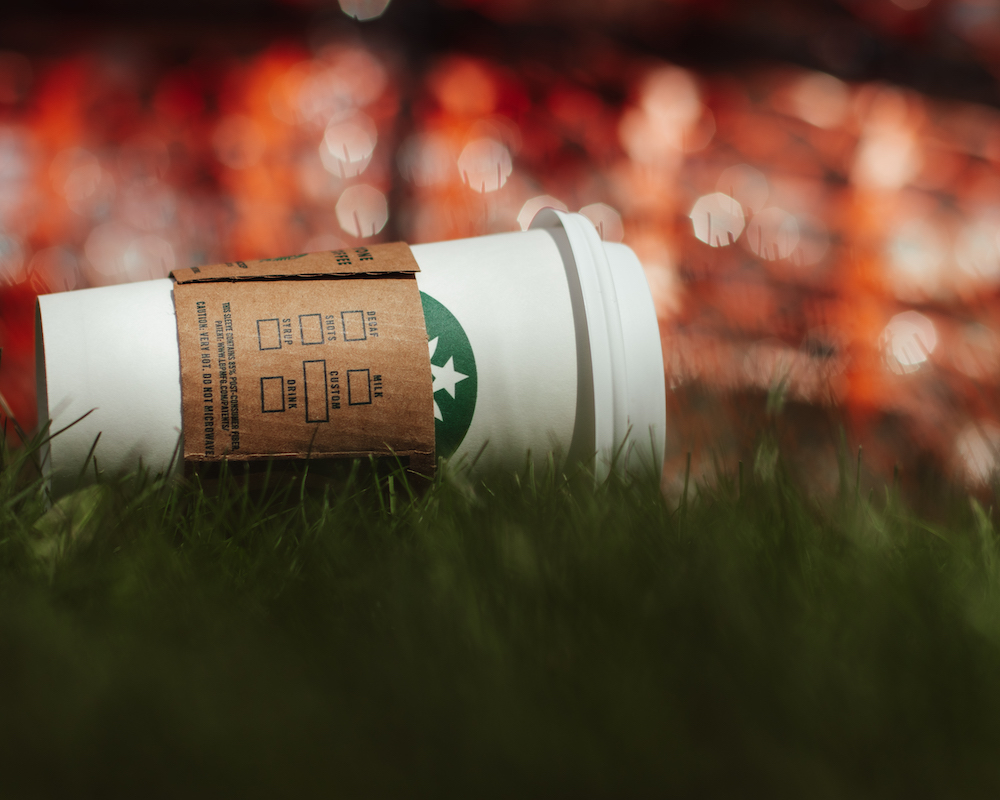JESSICA MEDITZ Editor in Chief
LYDIA TURCIOS Special to The Leader
Most of us are probably aware of the environmental apocalypse that is brewing in the world right now.
Luckily, there are endless suggestions and resources on how to reduce your carbon footprint and do your part to save the planet.
It can be difficult to practice what these reliable sources preach, though, if you reside in a college dorm.
This is especially true for our campus, which Dr. Jonathan Titus of the biology department says is, “not sustainable at all.”
If you live and rely on the campus, a good chunk of the waste you produce is out of your hands.
Students don’t sort or take out the big trash bins, they don’t handle the major cleaning and they’re not in charge of how our campus decides to transport things or what products are used.
There’s only so much we can do without inconveniencing ourselves, but there are possibilities for change in the event that students realize this and come together, according to Titus.
“I really don’t know how to get students interested in these things… interest is quite low.”
Fredonia’s Student Association has a Sustainability Committee, and its chair, Anna Gagliano, agrees that it’s hard to get students interested.
“I’ve never had more than three active members, and have had zero for the past academic year,” she said.
If you’re passionate about environmental issues and would like to see change happen, you can join the Sustainability Committee or gather a group of friends and start your own environmental student group. With the proper administrative approval, Fredonia students have the opportunity to create their own student organization.
Spreading the word and getting people informed would be the next step to increase interest levels.
According to Titus, Fredonia is slightly advantaged in that we are not a campus that has a population of students who don’t believe in climate change or are actively opposed to environmental regulations.
His point is that most students probably think the environment is important and all, but the issue is getting them to make changes to their lifestyles.
“You just kind of make these things happen by banning things on campus,” he said.
Most of these things are food-related, as Fredonia is very much a throwaway campus in that regard.
On the note of food, who knows how much is dumped out of Cranston Marche and Willy C’s every day as normal trash?
It’s hard to imagine, but things actually used to be worse.
Cranston used to have trays that people would fill up with food for the heck of it, just to throw out. Ultimately, the trays were done away with and slightly less food is thrown out now.
Small changes like this can be made in all cafes and dining halls just to be even a bit more sustainable.
“Tim Hortons and Starbucks have to be dragged kicking and screaming for them to charge for a disposable cup,” said Titus.

“That way, people can bring their reusable cups [and avoid plastic waste].”
As a result of COVID, reusable cup usage was put on hold despite health experts agreeing that they are safe to use.
As for using things elsewhere, it wouldn’t hurt to have more communal amenities dedicated to sustainability, for example, more recycling bins in the main hall dorms and other places on campus.
It should be noted, though, that much of what goes into recycling bins actually ends up in the landfill.
The sorted trash bins such as the ones outside of Cranston could also be expanded to more sidewalks. College students eat on the go, after all.
Another big one is more water bottle refill stations to reduce plastic bottle use.
Sure, we have them — but not in every building, and in particular, none outside.
They’re only in the newest buildings with the most recent renovations, leaving a large swath of the buildings and walkways on campus with maybe one or two old water fountains anywhere near it.
You’d buy less plastic if there were more convenient options to fill up what you already have.
In fact, according to Titus, plastic water bottles are not only expensive, but the water is lower quality than the water from the tap, anyway.
Therefore, making this small lifestyle change would be a win-win.
While any small effort for environmental change is good, at the end of the day, it needs to be a group effort. And it all begins with the people in charge.
Students: if you truly care about this, it’s time to look to the administration and the student government for assistance in implementing these ideas.
Come up with and pitch reasonable, detailed initiatives to show these higher ups that you know what you’re talking about and leave them with little to no work to do.
Use your social media platform or get involved with campus media to spread the word.
Boost awareness or get involved with the campus garden, or contact Dr. Titus about coming to the next garlic mustard pull, an event in which students and faculty come together to to pull non-native invasive garlic mustard at the College Lodge.
If none of these sound easy, it’s because they’re not. But Earth is our home, and it should not take a crisis for us to get up, go outside and do what we can to take care of her.
